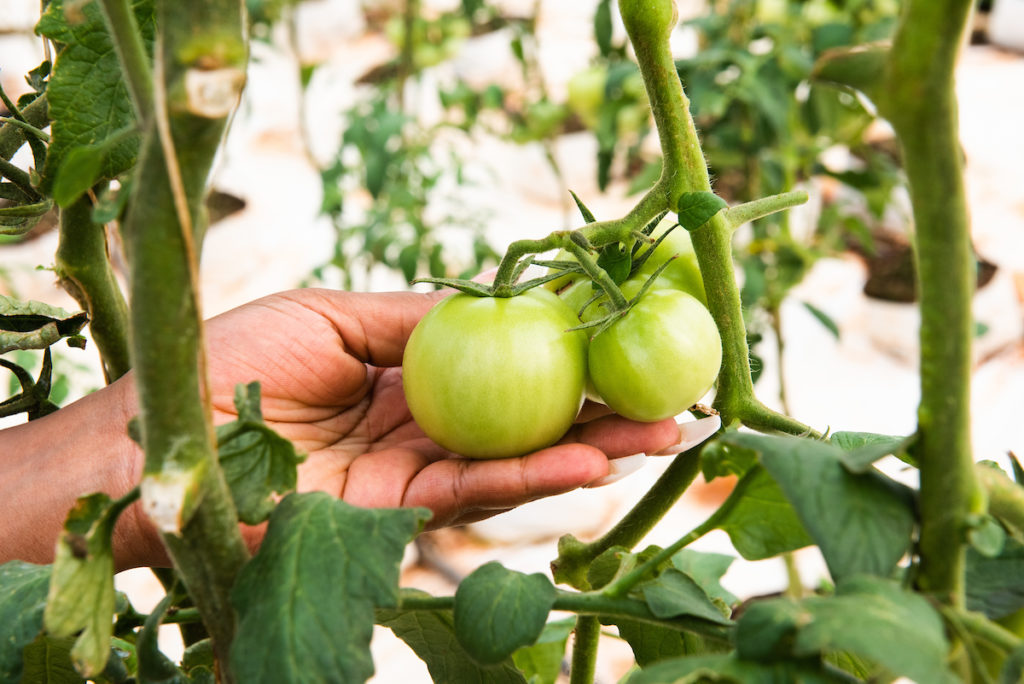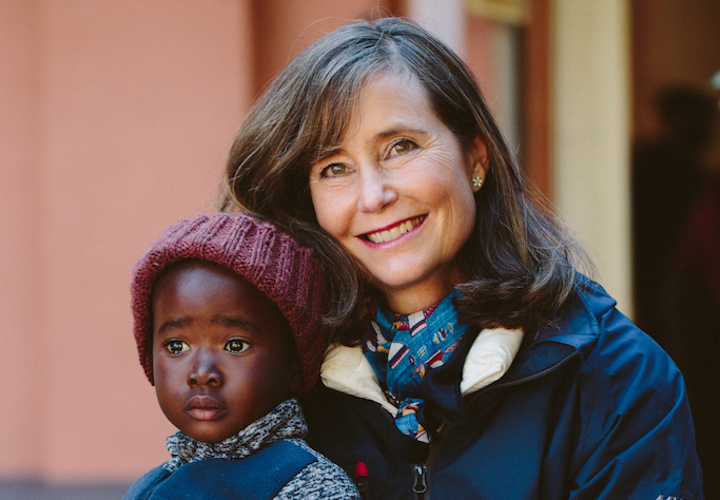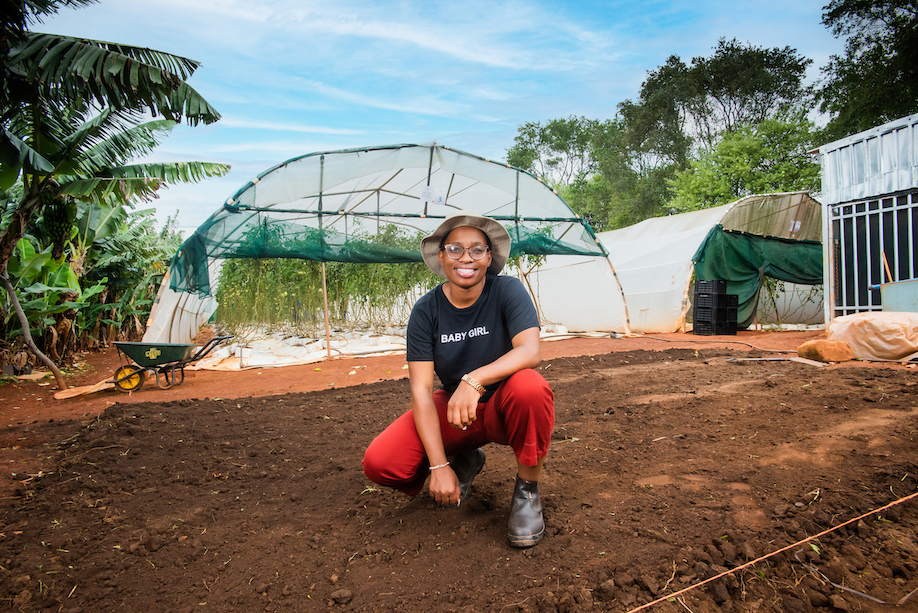
The Company We Keep: Welile Gumede (You say ‘tomahto’)
The Company We Keep is a column on the CN&CO blog that profiles some of the most interesting people in our networks. Here we share the details of the lives of people we know, showcasing the extraordinary diversity of our society and proving that people truly are at the heart of everything we do.
Towards the end of 2020, CN&CO was contracted by Lulalend to run some PR for the winners of the Santam Woman of the Future competition. Colin Ford spoke to three incredible women, who have all made a huge impact on the communities they serve. Welile Gumede was one of them….
This article originally appeared in the December 2020 issue of Get It Ballito/Umhlanga (pp 36-38). Photos by Chris Allan.
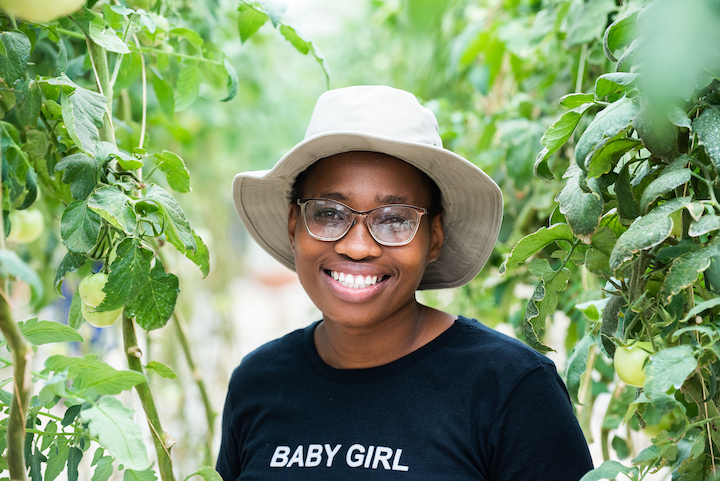
If you had tomatoes in your lunch-time salad today, there’s a chance they were grown by award-winning KwaDukuza farmer, Welile Gumede. Her farm, Azowel Projects, produces around 1.5 tons of tomatoes and peppers a week and employs 13 people. The produce is distributed via a local wholesaler to resellers all along the north coast.
Welile started Azowel Projects on a disused piece of farmland in 2018. She was just 26 years old at the time and had absolutely no farming experience.
“After school I studied to be a dentist’s assistant,” she says. “When I couldn’t find work, I went back to college to study chemical engineering. That didn’t pan out either. Eventually I ended up waiting tables at a restaurant in Ballito.”
After three years as a waitress, Welile returned to her home village of Maphumulo, where she had heard about a piece of land that had the potential to be farmed.
“I could literally see the land from my bedroom window,” she recalls. “I hadn’t really paid much attention to it before because I was studying and waitressing. But now I started thinking… this land has been lying barren for the past eight years.
“I started doing research on my phone, asking Google all about farming – particularly tunnel farming. The more I got to understand about the practice, the more interested I became. I came to realise how much unused land we have in our district. There are plenty of abandoned and unproductive farms that just needed someone to revitalise them.”
Welile encountered huge administrative hurdles trying to get the go-ahead to begin farming on the land and eventually started casting her net wider and wider, until she came upon the piece of land she now farms in KwaDukuza.
“The property was held by the Qwabe Trust as part of a land claim in the area,” she says. “I approached the trust and they gave me permission to start farming.”
The farm was in a state of disarray. The land had been left barren and the tunnels vandalised and weather-damaged.
“There had been no commercial activity on the land since the previous owner moved,” says Welile. “I approached the local municipality as well as the regional department of agriculture for assistance, but received no response. So I started to restore the farm slowly with money I had saved and borrowed, one tunnel at a time, gradually building up to the 10 tunnels we operate today.”
In the process, Welile employed 13 people – two security guards, one person to tend each of the tunnels, and a general worker who looks after the rest of the farm.
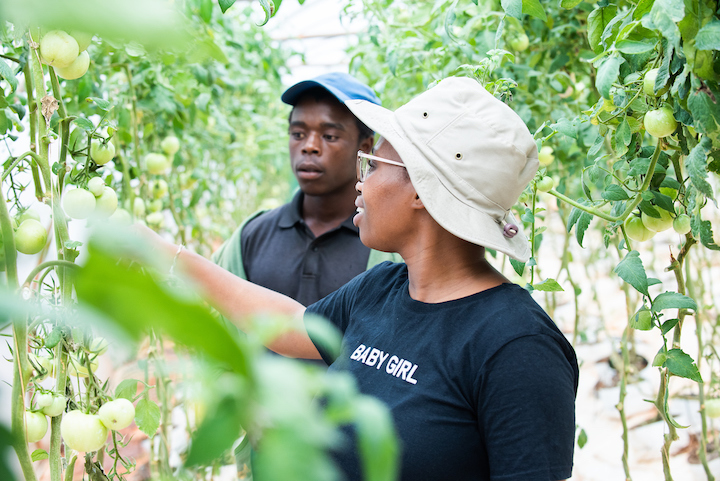
“One of the most important parts of the farm is the laager of trees that act as wind breakers around the tunnels,” she says. “There are so many emerging farmers in the area who don’t understand the importance of the trees and end up losing their tunnels and their crops to the wind, which can get really intense in this area during a storm. This is really sad as these projects are forced to shut down before they have even started.”
In November 2020, Azowel Projects received government funding that will allow it to expand the farm by an additional 10 tunnels. This will allow Welile to more than double her crop yield.
“The new tunnels will be taller than the existing tunnels, which will mean a higher yield is possible for both tomatoes and peppers,” she explains. “If all goes well, we can expect our first fruit in January.”
Award winner
In 2018, with just one tunnel up and running – and before she had official permission to use the land – Welile entered the local Chamber of Commerce’s entrepreneurial awards competition. She came third, which was a huge inspiration.
More recently, Welile was named rising star in the Santam Women of the Future Awards and is busy preparing the farm for an inspection by the Global GAP (Good Agricultural Practices) awards committee.
“Winning these awards has really given me a confidence boost and confirmed that I am on the right track,” says Welile. “Winning a global award would be an incredible achievement – especially for someone who learnt all she knows about farming on YouTube!”
